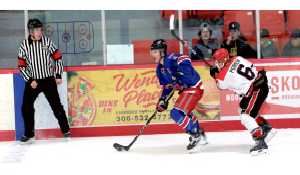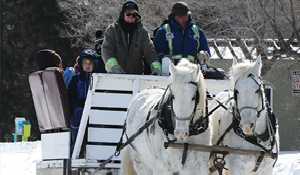Tapping out on the culture of activism
July 10, 2017, 11:47 am

With otherwise wonderful Canada Day 150 ceremonies around the country there were the rare but obligatory marches decrying Canada’s “disgusting genocidal reality” and the usual litany of demands for “de-colonization” and an “end to the settlers”.
Turns out, amid the culture of protest and attention seeking, that it was just another day in the eternal competition of whose well-publicized hurt feelings, grievances and complaints should become your problem.
We live in one of the best countries in the world during the most advanced and prosperous time in human history.
While it would be misguided to believe that all is perfect, lately the cacophony of attention seeking grievance collectors would have us think that we are living in the end times.
It wasn’t always this way. But times are different. Our world has changed in at least five ways.
First, an epidemic of precious has overtaken a sense of community.
Individual exceptionalism means that everyone is unique with their own special palette of fascinating story and narrative. And you’re lucky they’re choosing to tell you about it. In addition to killing conversation, it doesn’t always promote fitting in with the crowd or respecting others.
Johnny Oleksinski put it well in a hilarious piece last year in the New York Post entitled “I’m a millennial and my generation sucks”.
He laments being part of a “smug pack of narcissists who don’t just ignore the past but openly abhor anyone and everything that came before them”.
Oleksinski unloads on self-obsession, blaming others, complaining, entitlement and a “messiah complex that is the result of being coddled, petted and worshipped like toy poodles from infancy”.
Second -- closely related to the first -- is that no one has been told “no”. Part of this comes from creating snowflake children so coddled and unchallenged that their opinions actually harden and become more entrenched rather than less.
It also follows a trend where society has moved away from being based on hierarchies of structure that recognized tradition, merit, experience and knowledge. Today, “flattened out” structures based on inclusivity, democracy and transparency often see the word “no” as meaning “not yet”.
The third change is that the sun never sets on grievances. Yesterday’s victory used to mean the beginning of closure; now it’s merely a starting point for the next round of complaints.
Related to this is the framing of grievances as human rights. According to Prof. Dominique Clement at the University of Alberta, “rights inflation” has seen the several dozen rights in 1948’s Universal Declaration of Human Rights morph into over 300 recognized “rights” today.
A fourth facet of modern life is the cult of attention and publicity. From personal “brand building” on social media to unbridled attention-seeking, everyone is literally the star of their own movie.
The thirst for publicity also moves people to up the ante. If something gets attention, then larger and more extreme doses of it should mean more attention. Ultimately, activism means screaming “look at me, listen to me”.
And the fifth change of our times snuck up on us: the emergence of shamelessness. Even one generation ago, personal dignity, reputation, self-worth and what people thought of us meant something.
Moreover, the notion that our family or neighbors could be brought into our shame had a strong deterrent effect on behaviour.
No more. Today, nothing is beyond shame.
In a public space where anything goes and, similarly, the mob squelches out disagreement by labelling dissenters as racists, sexists or any number of “phobes” it’s little wonder that many people have learned to say nothing.
It’s not that we don’t care. We do. Or that we don’t judge. We most certainly do. We just go about our lives in a public silence and indifference that is often confused with tolerance.
In short, many of us have had enough of the culture of activism. We’ve simply tapped out.




































